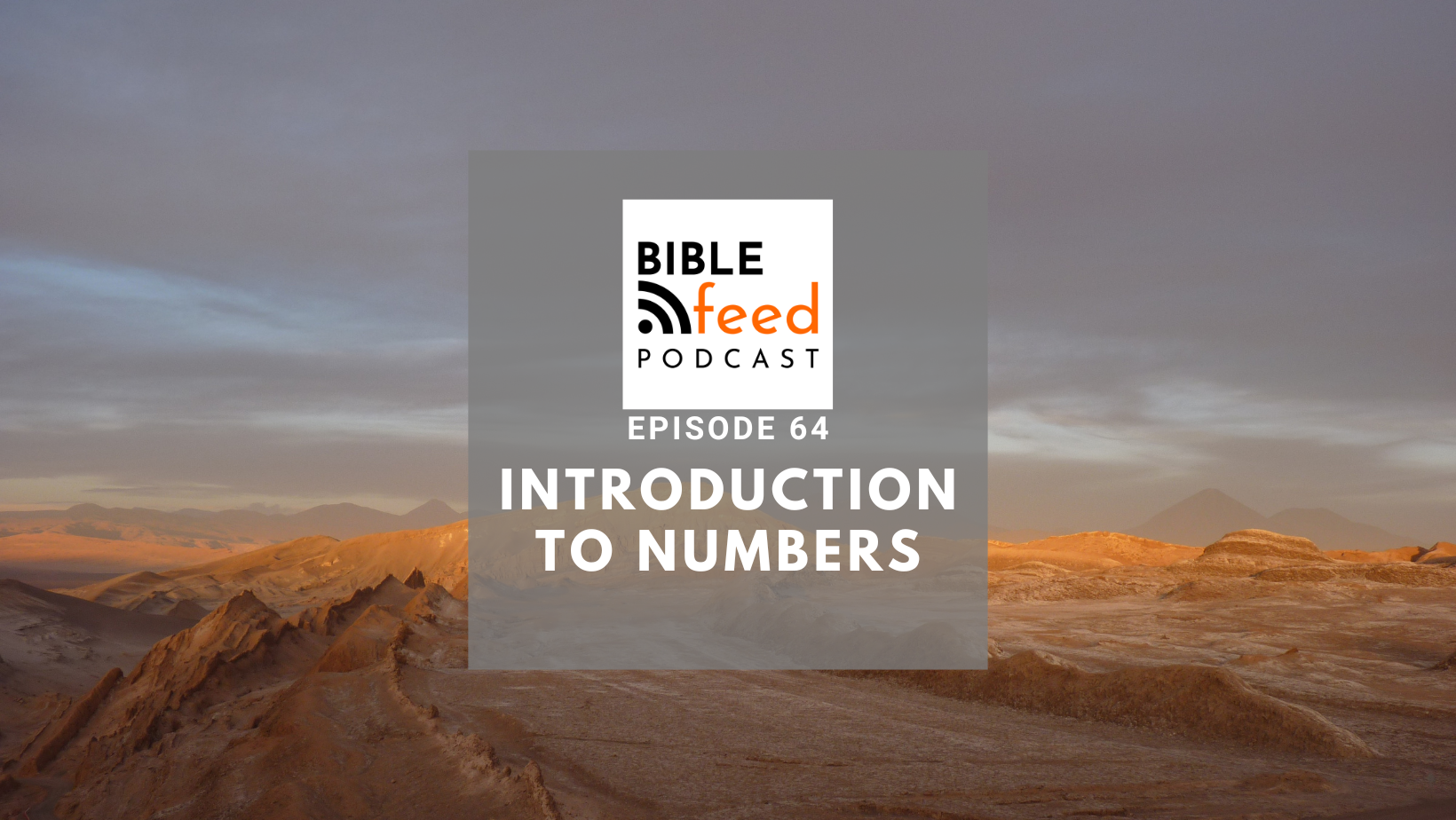Episode 64: Introduction to Numbers – the wilderness years
Josh and Paul continue our series of book introductions, taking on the next of the five books of the Torah – Numbers, which is actually not just about counting things, it’s about a journey through the wilderness. As they work through the sections of the narrative, they find a pattern that has already been repeated several times in previous books and has its roots in Genesis. They also look at the purpose of the two censuses and conclude that it says more about God’s overarching care for his people to protect, preserve and remain true to his promises. Listen in to find out where the journey ends!
Show Notes
Josh and Paul begin this episode by recapping the story so far from Genesis to Leviticus. This provides the context to the book of Numbers. The people of Israel had spent some time in Sinai, they received a law from God, built the tent of meeting (or tabernacle) to remind them of God’s presence among them, and now they were going to leave Sinai and journey to the land promised to them.
Action in the book of Numbers?
But the book of Numbers doesn’t start with much action. Instead, the very first thing you read is a description of a census. Josh and Paul discuss reasons why the book is structured in this way and identify sections that are based around just a handful of key locations.
- Section 1 – at Sinai (chapters 1-10)
- Section 2 – to Kadesh (chapters 11-12)
- Section 3 – Paran (chapters 13-19)
- Section 4 – to Moab (chapters 20-21)
- Section 5 – Moab (chapters 22-36)
The book opens with lengthy descriptions about how the camp and the people were organised before they journeyed from Sinai and the extensive provisions they had. There seems to be a deliberate contrast between this order and then the complaining and rebellion that occurs once they leave Sinai. From desiring the food of Egypt to opposing the authority of Moses, the narrative of Numbers echoes the same pattern and story of Exodus when the people were first led out of Egypt.
The pivotal moment in the book of Numbers
Josh and Paul continue through their overview of the book of Numbers by considering the narrative of the spies who went into the land of Canaan. This is the pivotal moment in the book of Numbers, much like the incident of the golden calf in Exodus. The people of Israel listen to the bad report of the spies and refuse to go into the land promised to them by God.
After the people of Israel are consigned to 40 years of wandering in the wilderness, there are several more sections containing laws for sacrifices. This sequence continues through the book. When things go wrong – when the people make poor choices – the writer introduces more sections containing the laws of the people. But the bad choices continue as if the narrative structure of the book of Numbers is teaching us that more and more laws cannot ultimately solve all problems with humanity.
Numbers in the book of Numbers
After considering the events of the wilderness wandering years, Josh and Paul look at the final census contained within the book, noting that the figures are remarkably similar to the numbers at the opening of the book. However, the figures are difficult to interpret in isolation and they spend a few minutes considering alternative suggestions to overcome the problems of having two million people in the wilderness.
However many people there were, there is a record of all the places they went to whilst wandering in the wilderness. Most of these places are completely unknown locations. Nobody knows where they were, but it’s striking that God records their journeys. The point is that God knew where they were at all times.
Further links from the book of Numbers to the rest of scripture
Josh and Paul finish the episode by noting some parallels between Numbers and Leviticus, particularly in one of the seemingly random additional laws that involved sacrifice outside a camp. The book of Hebrews draws on this to show that salvation comes from outside the law of Moses: “For if the blood of goats and bulls, and the sprinkling of defiled persons with the ashes of a heifer, sanctify for the purification of the flesh, how much more will the blood of Christ, who through the eternal Spirit offered himself without blemish to God, purify our conscience from dead works to serve the living God.” (Hebrews 9:13-14).
More content about the book of Numbers
A helpful summary of the structure of Numbers can be found here, alongside other useful content at Open Bible Learning.
One of our Bible Feed webinars considered the question “Why do you read the Bible?” and among the wide ranging content, the relevance of the book of Numbers was briefly considered as an example of ancient Old Testament books that often seem irrelevant.







